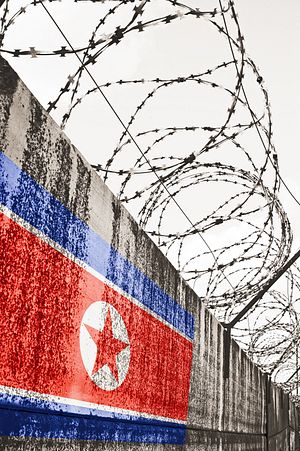A UN-commissioned report on human rights abuses in North Korea accused the regime of “unspeakable atrocities,” according to a news release from the United Nations. The commission, which based its report on testimony from victims and witnesses, concluded that “the gravity, scale and nature” of North Korea’s human rights violations “reveal a State that does not have any parallel in the contemporary world.” A full copy of the report can be found here.
The report documented crimes including murder, torture, slavery, rape and other sexual violence, and persecution for political, religious and racial reasons. In addition, the pervasive nature of state surveillance in North Korea results in “an almost complete denial of the right to freedom of thought, conscience and religion, as well as of the rights to freedom of opinion, expression, information and association.” The report also held the Kim regime accountable for “causing prolonged starvation” among the North Korean people, a situation the commissioners blame on a lopsided emphasis on military spending and “discriminatory resource allocation.”
The UN commission held the ruling Kim regime, now under third generation leader Kim Jong-Un, responsible. It found that the abuses stemmed from “policies established at the highest level of State.” In a letter to Kim Jong-Un, the commissioners informed him that the matter will be referred to the International Criminal Court, where he and other North Korean leaders might face charges of “crimes against humanity.”
The commission’s chairman, retired Australian judge Michael Kirby, made it clear that he hoped the report would spur the international community to action. “I hope that the international community will be moved by the detail, the amount, the long duration, the great suffering and the many tears that have existed in North Korea to act on the crimes against humanity,” he told reporters, according to the New York Times. “Now is a time for action.” The report itself noted that the fact that North Korea ”has for decades pursued policies involving crimes that shock the conscience of humanity raises questions about the inadequacy of the response of the international community.”
While it’s generally acknowledged in the West that North Korea is guilty of human rights abuses, international attempts to sanctions the Kim regime have focused almost exclusively on halting and dismantling the North Korean nuclear program. Human rights activists are hoping that the report will change that. “By focusing only on the nuclear threat in North Korea, the Security Council is overlooking the crimes of North Korean leaders who have overseen a brutal system of gulags, public executions, disappearances, and mass starvation,” Human Rights Watch Executive Director Kenneth Roth said.
North Korea has denied the report’s claims in a statement issued by its diplomatic mission in Geneva. Such abuses “do not exist in our country,” the statement read, calling the report the “instrument of a political plot aimed at sabotaging the socialist system.” “We will continue to strongly respond to the end to any attempt of regime-change and pressure under the pretext of ‘human rights protection’,” the statement added, according to Reuters.
When it comes to coordinating international action against North Korea, China is the country to watch. As a permanent member of the UN Security Council, China can and will veto any motion to take the matter before the International Criminal Court. Chinese Foreign Ministry spokesperson Hua Chunying flatly told reporters that “To bring human right issues to the International Criminal Court does not help improve a country’s human rights conditions.”
If reporters (or the international community) were hoping for a concerned response from Beijing to the allegations against China’s neighbor, they were sorely disappointed. Hua’s only other comment on the matter was China’s standard position that “differences in human rights should be handled through constructive dialogue and cooperation on the basis of equality and mutual respect.” There was no response to the allegations themselves.
Chinese support for the Kim Jong-un regime remains intact—in fact, Vice Foreign Minister Liu Zhenmin is in Pyongyang this week on a routine diplomatic visit. The topics to be discussed include bilateral relations, denuclearization, and China’s hope for a return to the Six-Party Talks. Predictably, human rights were not on the agenda.
It’s been difficult enough for the U.S. to get China to go along with sanctioning North Korea over repeated nuclear provocations and ballistic missile tests—and China has repeatedly stated its interest in preventing North Korea from becoming a nuclear state. China’s interest in seeing Kim Jong-un and his security apparatus brought to trial for human rights abuses is precisely zero. For one thing, China itself is often accused of human rights abuses, and therefore has no interest in helping the West prosecute another leader for “crimes against humanity.” China, like North Korea, views human rights concerns as simply another weapon the West (notably the U.S.) uses to attack its enemies.
More importantly, punishing North Korea would run directly counter to China’s primary goal for its neighbor, which is to keep a baseline of stability so that the state can continue to function as a buffer zone between China and U.S.-allied South Korea. Foreign Minister Wang Yi promised U.S. Secretary of State John Kerry last week that China “will never allow any chaos or war on the Korean Peninsula.” At the time, the remark was taken as evidence of China’s commitment to preventing further advances in North Korea’s nuclear program. However, the statement also underlines why China will block any substantial international action against North Korea’s human rights abuses. Responses ranging from a trial of Kim Jong-Un to more sanctions on North Korea could easily lead to “chaos,” and China simply won’t let that happen.

































